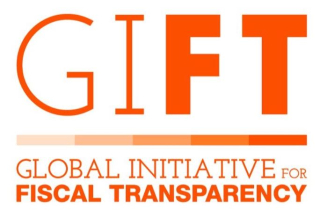Posted by Juan Pablo Guerrero[1]
When it comes to learning, few methods surpass learning from experience. Practice, trials and errors, help people become experts. Unfortunately, such learning by trial and error can be an expensive way to design public policy, in terms of institutional resources, as well as in terms of social and political implications. For the introduction of new policy practices, a second-best method can involve learning from peers. A peer who deals with similar tasks and institutional objectives, such as advancing fiscal transparency, might very well find comparable obstacles and lessons along the way. The shared experience of peers incorporates crucial elements of teaching, such as methodology, approaches and lessons learned. At the same time, the peer-to-peer rapport gives significant value and credibility to the experiences shared and exchanged.
With the above in mind, the Global Initiative for Fiscal Transparency (GIFT) network has invested strongly in peer-to-peer learning activities since 2014. GIFT is a multi-stakeholder action-network which aims to achieve sustained, measurable improvements in fiscal transparency, public participation and accountability in countries around the world. The network aims to advance incentives, norms, peer-learning, technical assistance, and new technologies. Its 37 members, called stewards, see in GIFT meetings an opportunity to exchange their experiences on a wide range of topics, and to learn from others.[2]
GIFT has facilitated the exchange of experiences and technical expertise on peer-to-peer activities mainly through the Fiscal Openness Working Group (FOWG) of the Open Government Partnership (OGP). The network regularly organizes workshops and meetings, in which budget officials and follow-the-money civil society organizations interact, and exchange practical methods. Since 2014, the network has been working with more than 40 countries to establish ambitious fiscal transparency commitments, as well as to improve implementation efforts.
GIFT has worked specifically on the following activities:
- Design, redesign or introduce a fiscal transparency portal. Portals are collections of freely available data and tools that also provide visualizations, data dashboards, tables, charts, and maps, and access to all the underlying fiscal data. Since the early 2000s, Brazil and Mexico have introduced fiscal transparency portals, the lessons from which have been shared with other network members, such as South Africa, El Salvador, Uruguay, Indonesia, Dominican Republic and Guatemala. As we know, the disclosure of fiscal information should be accessible, free, open, and respond to the needs of users. But to get to that point demands time and experience. Learning from peer experiences has certainly proven to be an effective step forward.
- Introduce the Open Fiscal Data Package, which allows the disclosure of fiscal information in open source formats, meaning that the data can be freely used, re-used and redistributed by anyone. Countries introducing such packages include Mexico (the 2016 Federal Budget), Croatia, Uruguay, Guatemala and Paraguay. In June 2017, Paraguay published budget, program, and performance data as well. Taking a step further, Mexico has started working with GIFT’s Steward Open Contracting Partnership to link the federal budget data with procurement information. From there, citizens and CSOs should be able to use these data to better monitor budget implementation.
- Introduce open contracting standards: the Open Contracting Partnership (OCP), a GIFT steward, is an international initiative to increase transparency and integrity in public procurement. It has three main elements: making procurement contracts open by default; providing procurement data in machine readable open data format; and creating opportunities for direct public participation across the procurement cycle. OGP Countries such as Mexico, Guatemala, Colombia and Paraguay have been implementing the Open Contracting Data Standard for the full public procurement cycle, from planning and tendering through implementation.
- Apply the GIFT Principles on Public Participation in Fiscal Policies in the various phases of the budget cycle. Network participants have learned about the Public Policy Councils in Brazil, which provide an avenue of dialogue between civil society and government to promote public participation in public policy management and decision-making. They have also learned about bottom-up budgeting process on the Philippines, which aim to deliver basic social services to the poor, and empower local communities; and efforts to improve the infrastructure and equipment of the most vulnerable basic schools in Mexico. For more examples, see the GIFT Guide on public participation.
[1] Network Director, Global Initiative for Fiscal Transparency
[2] The lead stewards of the network are the World Bank, the International Monetary Fund, the International Budget Partnership, The International Federation of Accountants, and the budget departments of Brazil, the Philippines and Mexico.
Note: The posts on the IMF PFM Blog should not be reported as representing the views of the IMF. The views expressed are those of the authors and do not necessarily represent those of the IMF or IMF policy.






